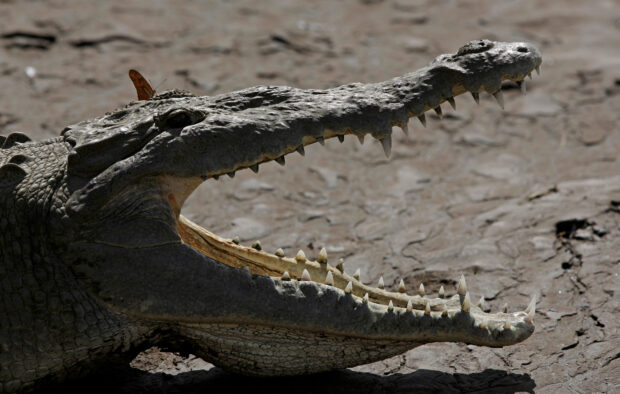Scientists find crocodile ‘virgin birth’ at Costa Rica zoo

A large crocodile is seen on the bank of the Tarcoles River, a river with one of the highest crocodile population in the world, in Tarcoles, province of Puntarenas, Costa Rica, July 16, 2019. REUTERS FILE PHOTO
MEXICO CITY — Scientists have documented the first-known instance of a “virgin birth” by a crocodile, which had been living in isolation for 16 years at Costa Rican zoo, according to a study published Wednesday.
The female American crocodile laid 14 eggs in 2018 within her enclosure, a not uncommon phenomenon among captive reptiles. The more puzzling fact, however, came after three months of incubation when one egg was found to contain a fully formed stillborn baby crocodile.
According to the study published in the journal Biology Letters, scientists tested the crocodile fetus’ genetic makeup. They found DNA sequences showing it was a result of facultative parthenogenesis (FP), or reproduction without the genetic contribution of males.
The phenomenon of FP, which some scientists have referred to by the shorthand of “virgin birth,” has also been documented in other species of fish, birds, lizards and snakes. The scientists said this is the first-known example in a crocodile.
In FP, a female’s egg cell can develop into a baby without being fertilized by a male’s sperm cell.
Article continues after this advertisementIn making an egg cell, a precursor cell divides into four cells: one becomes the egg cell and retains key cellular structures and the gel-like cytoplasm, while the others hold extra genetic material.
Article continues after this advertisementThen, one of those cells essentially acts as a sperm cell and fuses with the egg to become “fertilized.”
The American crocodile is considered vulnerable and at risk of extinction in the wild. According to one hypothesis, FP may be more common among species on the verge of extinction, the study said.
The scientists said the Costa Rica “virgin birth” could lead to new information about crocodile ancestors that walked the earth in the Triassic Period some 250 million years ago.
“This discovery offers tantalizing insights into the possible reproductive capabilities of the extinct archosaurian relatives of crocodilians and birds, notably members of Pterosauria and Dinosauria,” the study said.